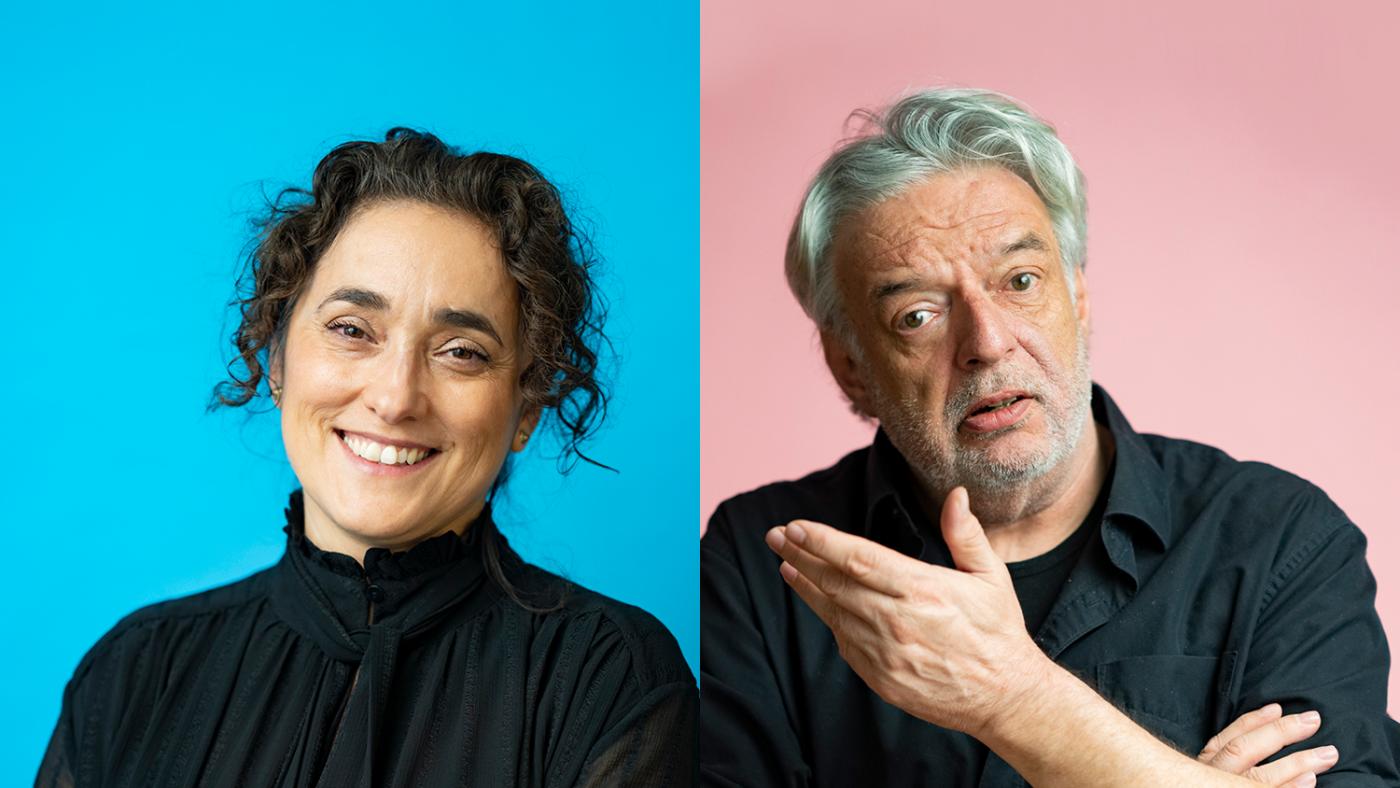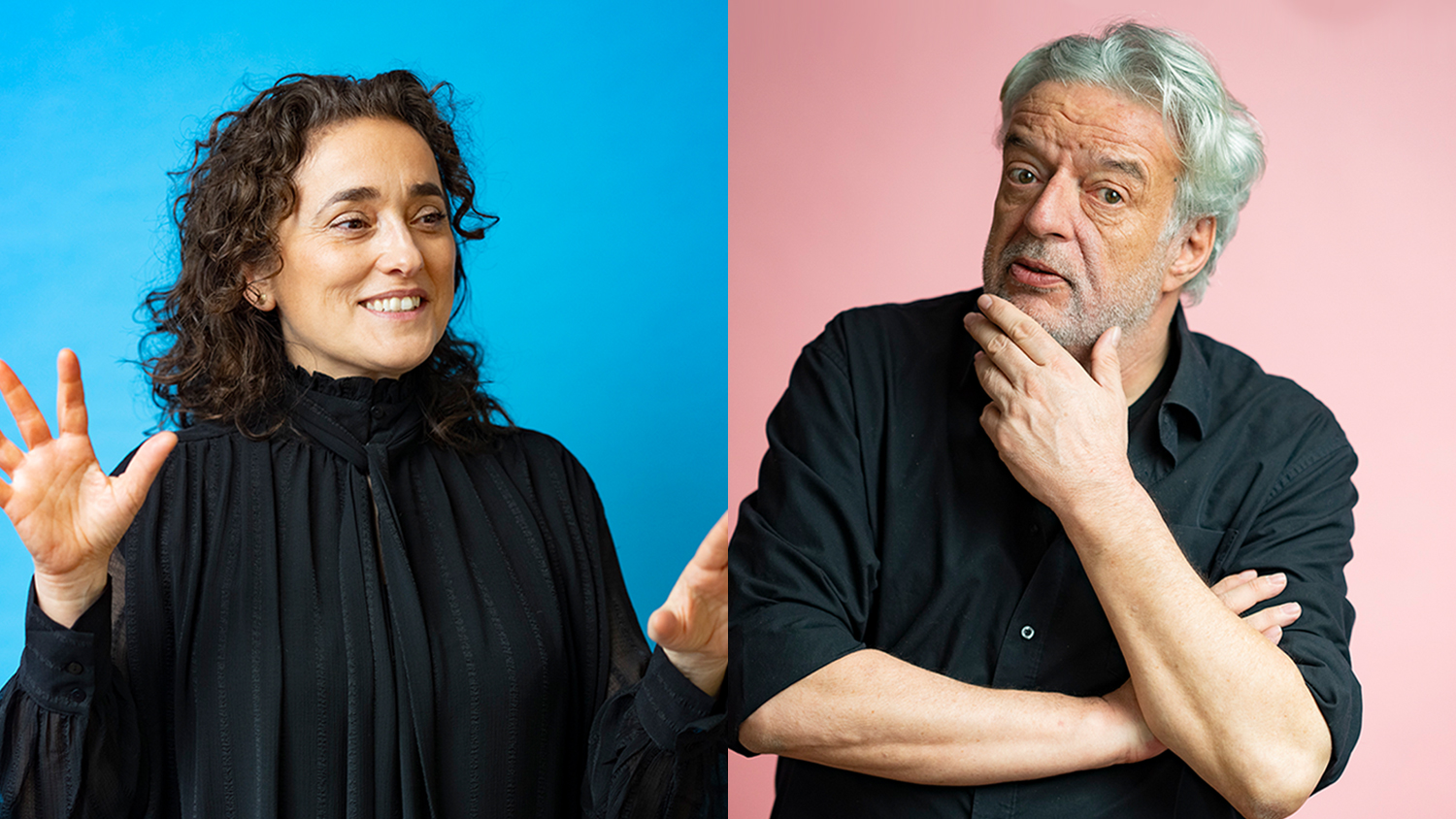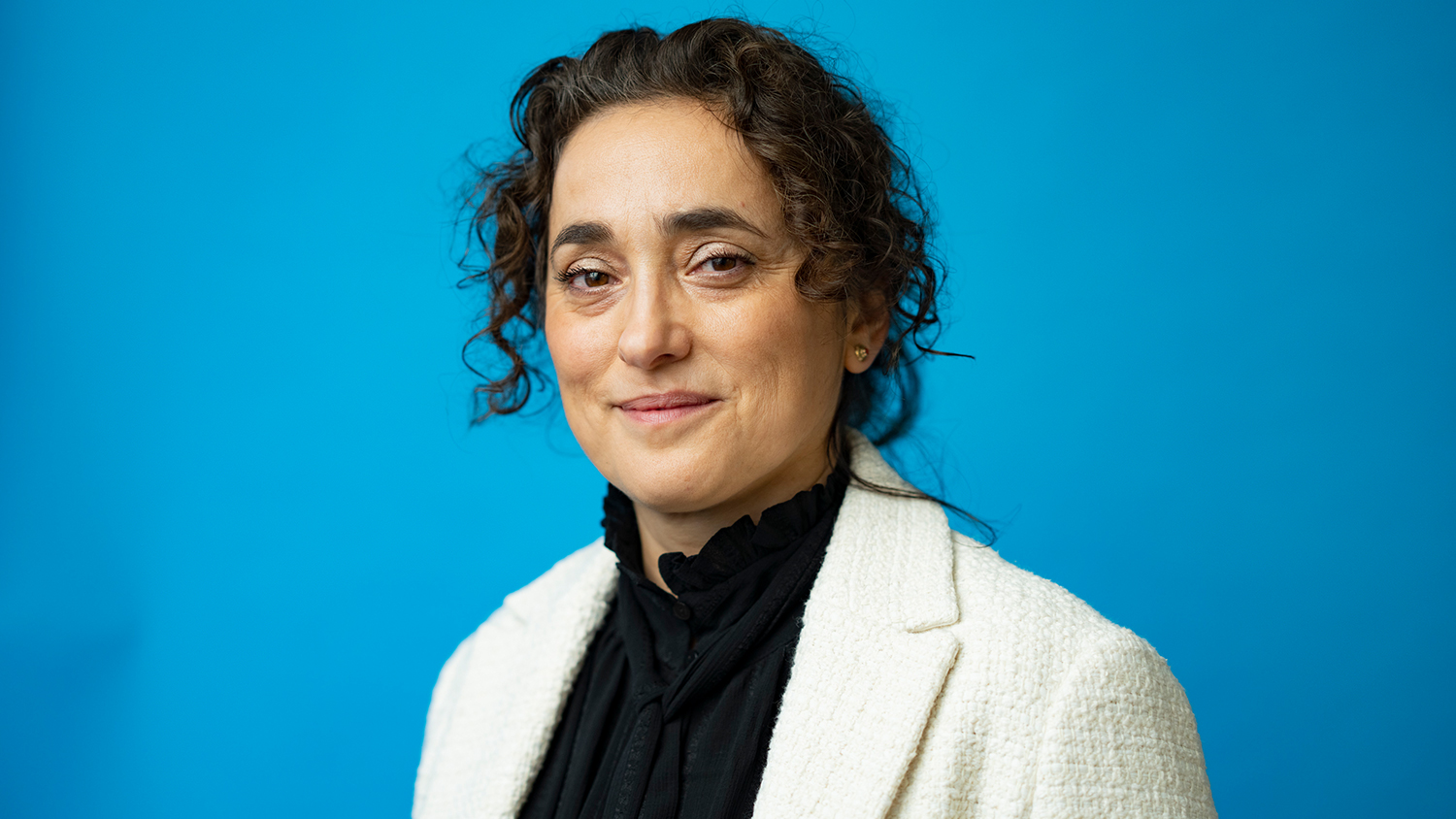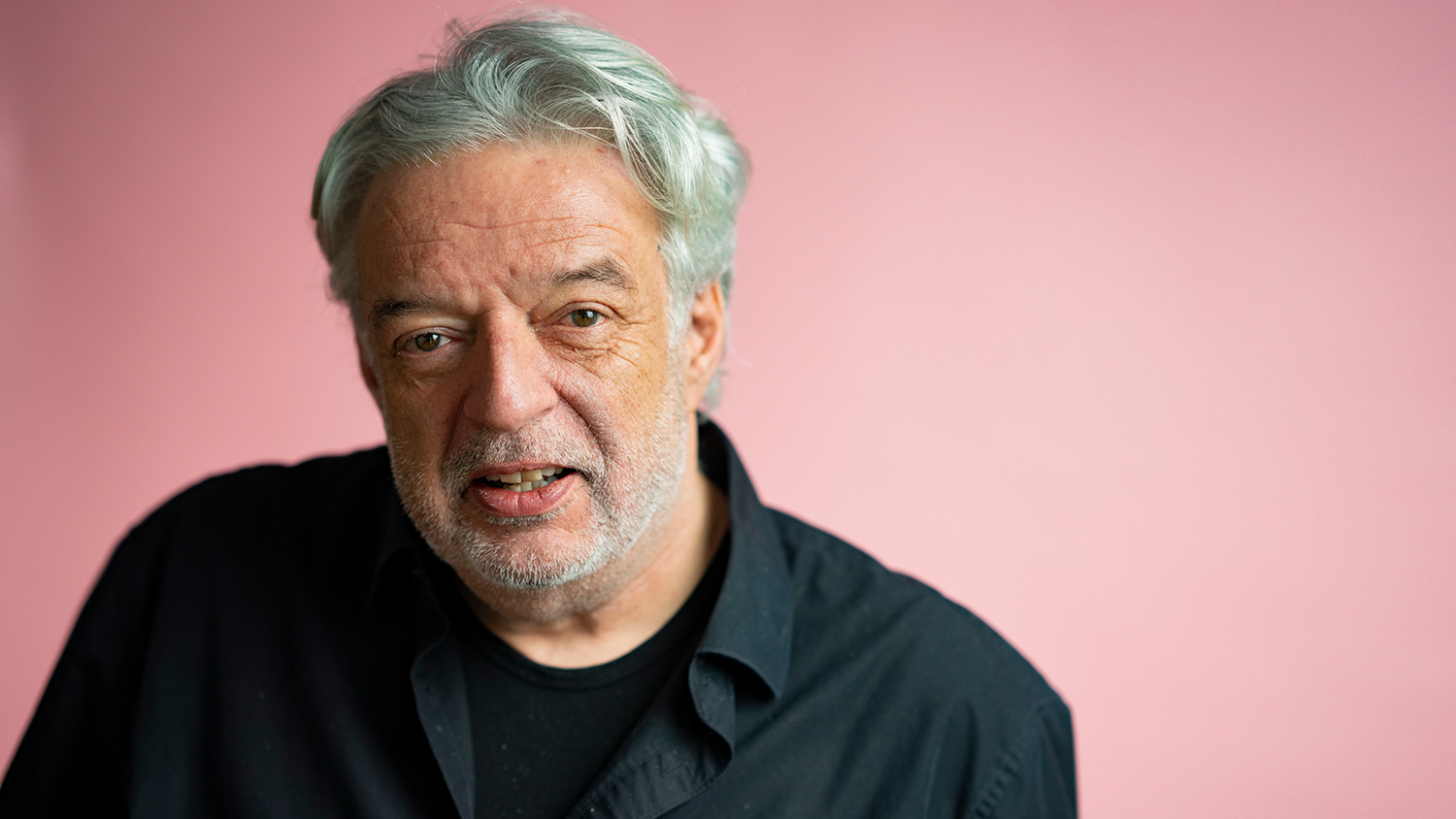Gönül Dilaver and Ruud Schotting in dialogue: "You have to dare to embrace discomfort"

Het laatste jaar is op de universiteit de discussie over diversiteit, inclusiviteit en institutioneel racisme weer opgelaaid. De universiteit heeft het programma Equality, Diversity & Inclusion in het leven geroepen die moet zorgen dat de universiteit meer inclusief is, ongeacht leeftijd, gender, functiebeperking, seksuele geaardheid, culturele, etnische of religieuze achtergrond. Het is niet altijd duidelijk wat inclusief zijn precies inhoudt, maar de bottom-line is dat iedereen zich aan de universiteit thuis moet voelen.
De discussies verlopen niet altijd soepel. Zo is er onenigheid over de aanname dat de universiteit ‘te wit’ zou zijn. De één zegt dat de UU bij uitstek een witte universiteit is, de ander zegt dat het reuze meevalt als je kijkt naar het aantal leerlingen met een migratie-achtergrond op het vwo. Ook lopen de ideeën uiteen of je meer culturele diversiteit krijgt door het aantrekken van internationale studenten of door Nederlandse leerlingen met een migratie-achtergrond te werven. En natuurlijk bestaat diversiteit uit veel meer aspecten dan culturele afkomst.
Het debat over Black lives matter en de vraag of er ook op de universiteit sprake zou zijn van onbewust of institutioneel racisme heeft het thema inclusiviteit nog eens extra op scherp gezet. Aan de ene kant zeggen sommige studenten en docenten die enige vorm van racisme te ervaren of vinden ze dat witte studenten en docenten te weinig oog hebben voor hun privileges. Aan de andere kant zijn er mensen die vinden dat het logisch is dat een Nederlandse universiteit grotendeels uit witte mensen bestaat en willen niet in het hoekje gedrukt worden van racist, terwijl het juist moet gaan om gelijke kansen.
In deze serie dialogen zetten we twee mensen met een verschillende achtergrond bij elkaar om te spreken over hun achtergronden en hun ervaringen. Het idee daarbij is om eens te praten over de praktijk, de dilemma’s en de mogelijke oplossingen.
Vandaag hebben we twee mensen uitgenodigd met een groot onderwijshart. Zij kennen elkaar niet, maar hebben wel al even contact gezocht na de uitnodiging voor dit gesprek op Teams.
Discussions about diversity, inclusion, and institutional racism became more prominent this past year. The University has established the programme of Equality, Diversity & Inclusion with the aim to ensure that UU becomes more equal, diverse, and inclusive, regardless of age, gender, disability, sexual orientation, cultural, ethnic or religious background. Although it’s not always clear what that means exactly, the bottom line is that everyone should feel at home at the university.
These discussions don’t always go smoothly. There's no consensus about the university being "too white". While some say that UU is a prime example of a white university, others argue that the situation isn’t that bad considering the number of high school students with a migrant background qualifying for university-level education in the Dutch school system, in which pupils are classified into three education categories according to their interests and performance. Ideas also differ regarding how the university should go about in its plan to increase diversity: should it be recruiting more international students or more Dutch students with a migrant background? Not to mention diversity isn't just about ethnicity or origin.
The Black Lives Matter movement has moved the discussions around unconscious bias and institutional racism at the university to the forefront. Some students and teachers say they experience some form of racism, and argue that white students and teachers aren’t aware of their own privileges. On the other hand, there are people who think it makes sense that most students and staff at a Dutch university are white. They also do not like to be classified as racists by others, suggesing that the discussions should be less framed in terms of racism and more framed in terms of equal opportunity.
In this series of dialogues, we will get two people with different backgrounds together to talk about their past and present experiences. The idea is to start a conversation about practicalities, dilemmas, and possible solutions.
For our debut, we've invited two people with a passion for education. They had never met before our invitation, but did get in touch with each other through Microsoft Teams after we approached them.
Schotting: “In our Bachelor’s programme, most students and Dutch and white. That’s because part of the courses are taught in Dutch, although a little more than half of them are taught in English because the teachers are more comfortable working in that language. I have the impression that students with a migrant background tend to choose Bachelor's programmes like Law or Medicine. Our Master’s programmes are entirely taught in English, and therefore attract a more international group of students. We could turn our Bachelor's in Earth Sciences into an English-taught programme, too. I’m in favour of that idea, even though I know that such a change doesn’t necessarily mean that we’ll draw more students with a migrant background.
If you look at our research group, most PhD candidates and Master's students come from abroad. We’re proud to say we’re considered the most diverse research department. We have (and have had) people from Iran, China, Greece, Spain, Mexico, Pakistan, Turkey, Indonesia, and the USA, to name but a few. But there was also a time when we didn’t have a single Dutch person left, and I don’t think that was good either. We also have to try to retain talented Dutch students because that's good for diversity, too”.
Dilaver: “Our Master’s programme in Biomedical Sciences is pretty international, but it doesn’t reflect Dutch society. I feel like, in general, Utrecht University is fairly white. The pool of students with the potential to attend the university at Dutch secondary schools is much more diverse than what we see at UU. That’s certainly true if you look at our programme. I do wonder what’s causing that, and I think part of it is due to background: parents who didn't go to university themselves won't necessarily encourage their children to do so -- even if the children do have the potential.
The threshold to go to university is high for this group. In my view, the university could help lower it. Many students find their study programme scary in the beginning, especially if they’re the first in their family to go to college. That’s why, this summer, we’re starting a kick-start programme with the aim to give prospective students a chance to get to know the university a little more. What’s a university like? What is expected of students?
Another thing many students tell me is that they miss having teachers they can identify with. The educational system often lacks someone who leads by example, who shows them that they, too, can have a career like that. I never paid much attention to that in the past, but I’ve been realising more and more that I’m one of the few teachers with a migrant background.
Lastly, we could have more consideration for the students with different cultural backgrounds. I spoke with a student whose parents forbade her to participate in the honours programme because it was taught in the evenings. You can’t expect a student like that to completely free herself from her family. The parents didn’t understand the importance of the programme, and didn’t understand why it was organised in the evenings. That student wanted to quit, but then someone from the programme talked to the parents and she was allowed to participate after all. Study advisors could play a crucial role here”.
Schotting: “I think it’s self-evident to keep an eye on how students are doing as we play a role in their lives. As a teacher, you should try to make them feel at home at the university. Many students don’t have a clue what it’s like there. They say they go to ‘school’ and don’t have a clue what a PhD is. I always try to explain a little bit about how things work, and offer support where needed. I’ve also noticed that you can only succeed in academia if you know there’s someone who believes in you”.
Dilaver: “A teacher can make a difference in someone’s life. That’s my personal conviction and my experience as well. You can really give students a boost. For some of them, it’s an accomplishment to even be at the university at all. Someone who’s privileged usually has more opportunities, too. They are more aware of what to expect and they can talk to their family about their studies. They might not need to get a side job. Perhaps they have even done a summer school or their parents know someone who can help them get an internship. That's what I call a hidden curriculum. Teachers and internship coordinators who are aware of this can play an important role by having that conversation and helping to guide these students”.
Who is Gönül Dilvar

Gönül Dilaver (47) was born and raised in Zelhelm, a small town in a region of the Netherlands called De Achterhoek ("the rear corner"). Her parents were migrant workers from Turkey. “In the last year of primary school, the teacher asked my parents which secondary school I would go to. My father thought I would attend huishoudschool ("domestic school", an extinct type of school offering a lower secondary education focused on household tasks, ed.) because it was the only secondary school in Zelhem. Thankfully, my teacher replied appropriately. He said: 'That’s impossible. Gönül is a good student, she has to go to a secondary school in Doetinchem'. My father agreed. If the teacher said it, then that’s what had to happen. That was a life changing moment for me”.
After graduating from secondary school, the same question arose again. “Would I be able to keep studying? My parents agreed once again, but I wasn’t allowed to move out”. Dilaver then chose to study Biology at Radboud University, after not getting lucky in the random selection process for Medicine. She did very well in her studies and obtained a Propaedeutic degree in a year. Her parents were present at the graduation ceremony, when it was stressed how hard the students had worked. “My parents were impressed, and they could see I was taking my studies seriously. So, even if it wasn’t customary for them to have a girl move out on her own, they had faith in me, so I was allowed to move into a student house”.
Dilaver specialised in cell biology. Her histology (microscopic anatomy) teacher once said he needed student assistants. “Can I be one too?”, she asked. "He told me I should start by passing the course. He hired me when I did. That was an amazing experience, it's where my passion for education started”.
After graduating, Dilaver went to London for a year and then moved back to Nijmegen for a PhD in Biomedical Sciences. “I was crazy about my research, but I also wanted to teach during my PhD track. People thought that was odd because I’d have less time for the research”.
After obtaining her PhD, Dilaver served as a temporary study coordinator at the Molecular Life Sciences department in Nijmegen, later becoming a teacher in Biomedical Sciences. At a certain point, she started talking to Dop Bär, the director of Biomedical Sciences at UU, who hired her in 2007 as programme coordinator for the Master’s in Biomedical Sciences, where she was given more and more education management tasks. For years, Dilaver was the chairwoman of the programme coordinators of the Graduate School of Life Sciences.
“In all those years, I didn’t really think much about where I come from, but during a study about the selection process at Master’s level, I began to notice how few students with a migrant background we have in our Master’s programmes. Since then, I've been focusing on this issue a lot more”. Today, she is an associate professor in Biomedical Sciences Education, working on educational innovation and conducting research on education. She’s also the chairwoman of UMC Utrecht's platform on diversity and inclusion and a senior fellow working on the theme of inclusive education: "Diversity and Inclusion Beyond the Numbers".
Schotting: “Diversity is important. We have to find a balance, not just in terms of cultural background, but also in terms of male-to-female ratio. For instance, we kept trying to find a woman for the role of professor, but that turned out to be difficult. We had a long list of highly-capable candidates. Almost all of them were flattered, but decided not to go for it because of their husbands' careers, or their family life. In the end, we found our dream candidate in Belgium. She was willing to come, but only part-time”.
Dilaver: “Gender diversity is definitely necessary. Not just for social justice, but also because getting a different perspective helps the society. Take cardiovascular diseases, for instance: doctors used to only look at men, and it turned out that the medication didn’t work the same on women. That happens so often in the pharmaceutical industry. But that's not all: the first soap dispensers, the ones that dispense soap automatically when you put your hand underneath the sensor, didn’t recognise black hands. Self-driving cars weren’t able to see people of colour. To name but a few examples. We need more perspectives.
“But we can’t achieve diversity in a single way. We need a more integral approach, which means not just having a more diverse community, but also taking each other into consideration. I'm shocked at how often students with different cultural backgrounds encounter prejudice. The fact that they can’t find internships as easily, for instance. A while back, a student told me that he was excited because that was his first time performing a surgery. The moment he was holding the organs in his hands, the doctor started a conversation about his background. 'Where are you from? No, not Breda, but where are your parents from? Oh, Turkey, and are your parents Erdogan supporters?' The student was so uncomfortable discussing such a sensitive subject during his first surgery ever. I don’t think the doctor meant to be racist, but we’ve got so many unconscious biases. We need to be more aware of them. I’ve noticed that most students with a migrant background struggle with being constantly put in a 'different' position, constantly seen as other”.
Schotting: “Yes, we encounter so many different cultures within our group, too. For almost six years, I sat next to a Chinese PhD candidate, who later became PostDoc. I saw her twice a day. She said ‘good morning’ in the morning and 'good evening' in the evening, that's it, despite the fact that we regularly tried to involve her in the group. Thankfully, she was an exception. Now we’ve got two Chinese PhD candidates who contribute a lot to the ambiance.
But there are some limits for me. For instance, I asked a Turkish professor who was going to be a guest lecturer for us how he felt about Erdogan. That was when Erdogan said some terrible things about Dutch people and I didn’t feel like having someone in the group who agreed with that. I also asked a very religious Pakistani whether he would accept being in the same room with women or if he would feel comfortable attending events where alcohol is served. You can wonder whether you should be asking these things in the first place, but they matter if you want to have a team where everyone feels at home”.
Dilaver: “I can understand that. As long as you’re also trying to get people involved. Explain the do’s and the don’ts of Dutch culture, encourage international students and employees to learn Dutch. If you’re organising drinks, make sure there are snacks they’ll like. That increases the sense of belonging.
Diversity and inclusion are valuable, but not necessarily easy. People tend to look for those who are similar to them. The core of inclusion is that you dare to embrace the discomfort and learn from each other. Research shows that the most successful people from different cultures are those who socialise the most, those who adapt. They lose a little bit of their own identity. I believe that. But you can leave some room open for that identity. In the Netherlands, you can see that standards and values are evolving: Sinterklaas is celebrated differently today compared to 380 years ago.
I’ve been asked whether I’d hire someone who votes for a far-right party. That’s a question of conscience and I would say yes. Provided that the person functions well and respects others, yes. But I haven’t encountered this situation in real life yet”.
Schotting: “Sometimes, you almost literally have to take international students or researchers by the hand. I had a Pakistani PhD candidate who was incredible at reproducing facts. But we expect scientists to give us their own input, so I really had to teach him how to do that. Now, he’s going to be a senior lecturer in Pakistan and I’m immensely proud of that.”
Who is Ruud Schotting

When he was young, Ruud Schotting (63) didn’t find school all that interesting, so he didn’t do much and got downgraded from the VWO (the six-year education stream with a focus on theoretical knowledge, which prepares students to follow a Bachelor’s degree at a research university) to HAVO (the five-year secondary school that prepares students for professional education at a university of applied sciences). His dream was to become a musician or an actor, but his father, who worked in the harbour, didn’t see a future in the cultural industry, so he wanted his son to get a "good" job.
“In HAVO 4, I became fascinated by formulas. I had Physics and Maths teachers who were a little different from the rest and who inspired me with their stories”, Schotting recollects. He went on to study Engineering Physics at the Higher Technological School (HTS). During an internship at the Zeeman laboratory, which is connected to the University of Amsterdam, he became acquainted with the world of science. “That was amazing. I was allowed to sit in on a lecture, and for the first time, I saw a ‘real’ professor.”
As a conscientious objector to military service, he became involved in the research on the design for the Oosterschelde storm surge barrier, and got his first job at the Laboratory for Soil Mechanics (LGM) in Delft. “That’s how I ended up in the discipline of ground water and its drainage”, he explains. Later on, he got a position as research assistant in Mathematics through a friend and former LGM employee, and a PhD on the maths of ground water comparisons. Schotting then joined the hydrology department and became an assistant professor in mathematics. In 2004, the entire group moved from Delft to Utrecht because that enabled them to start their own research group as well as a new Master’s track called Environmental Hydrogeology.
“For me, as a first-generation student, that was a special route, where I constantly encountered something new. My parents absolutely loved that I got a PhD. They didn’t know anything about academia”. Even more special for his parents was the moment Schotting became professor by special appointment. “That position was a gift from Shell to Sultan Qaboos of Oman, to introduce more expertise in water management in the country and encourage academic collaboration between the Netherlands and Oman. The position was renewed after five years and then became a permanent position, for which Oman donated money to the UU.
Apart from research, I’ve also explicitly chosen education. I’m in the top three of people who teach the most classes at Earth Sciences, and I’m happy with that. It makes me angry when people call education a chore. I love and value teaching freshmen”.
What about his dream of becoming a musician? Schotting always held on to it. He plays the bass in a rock band and regularly performs in live concerts.
Photos: Ivar Pel